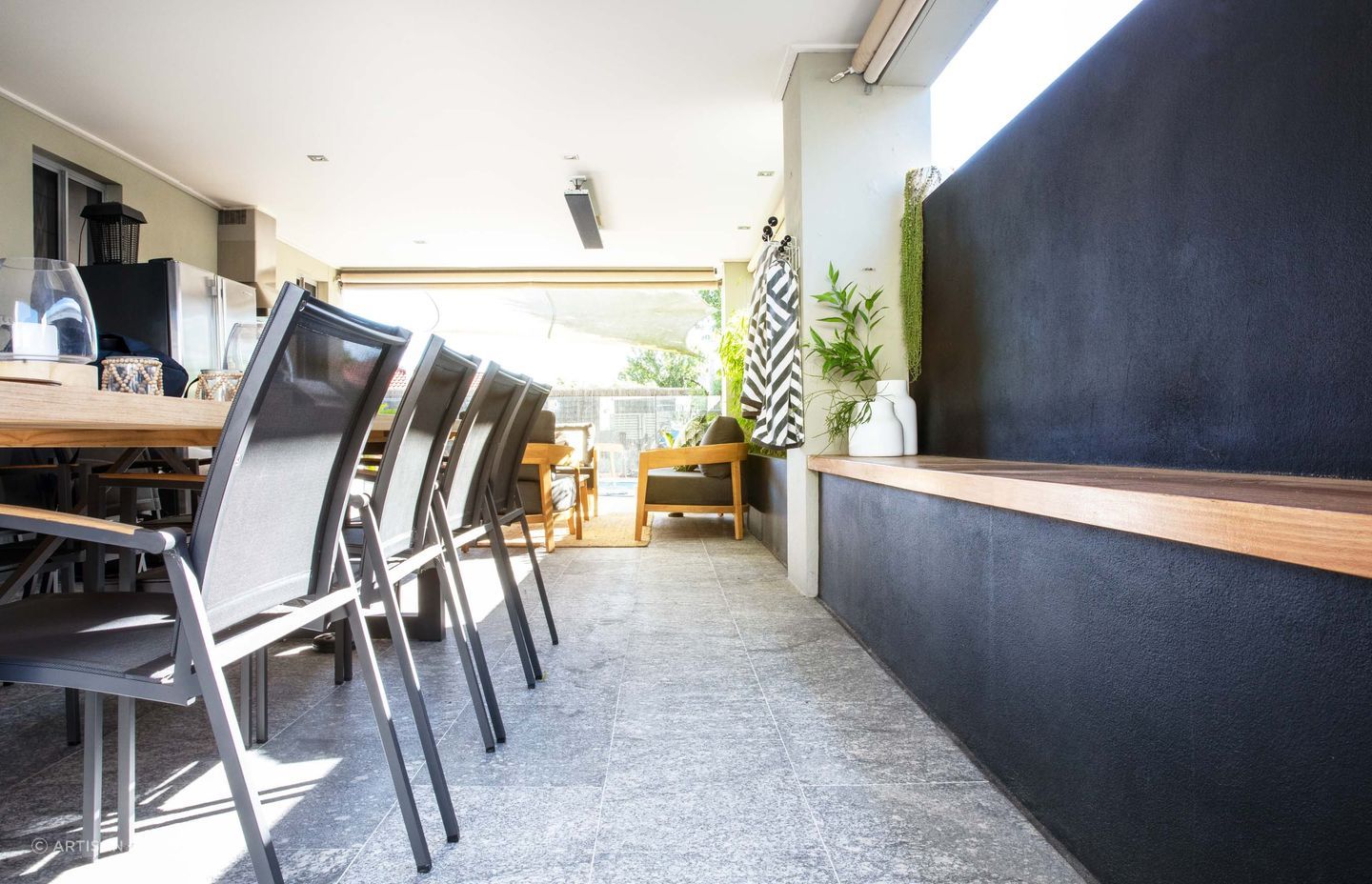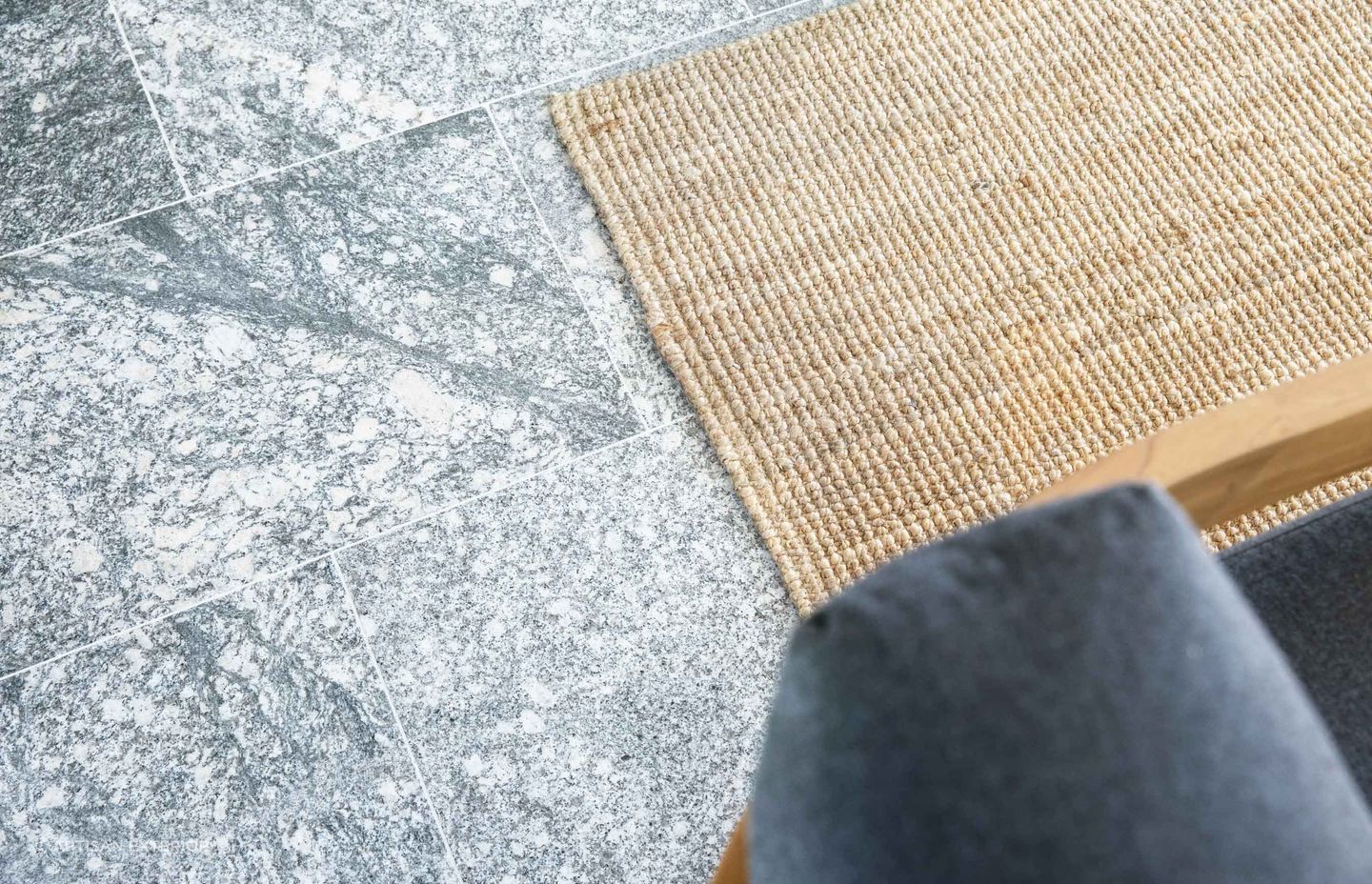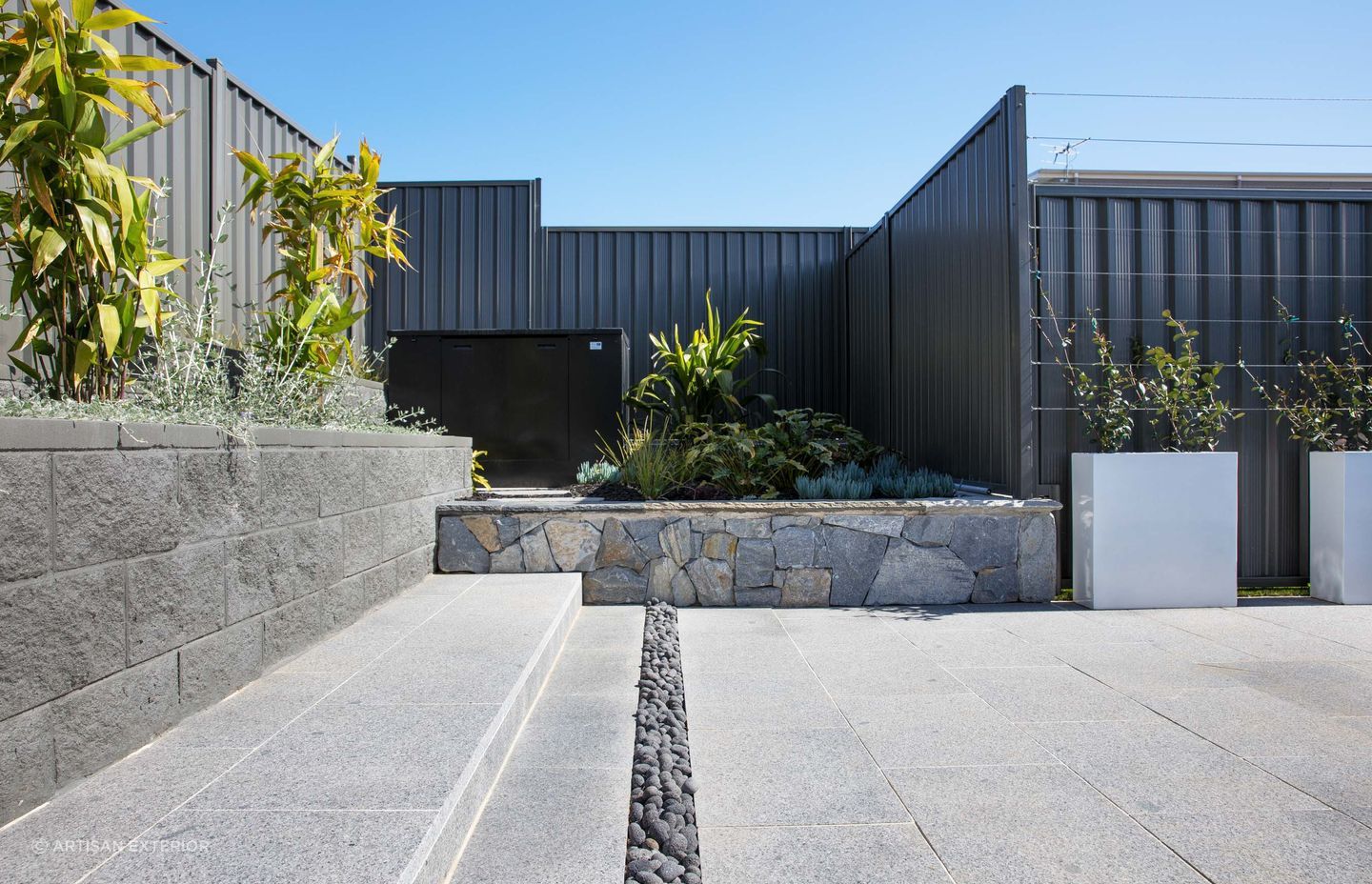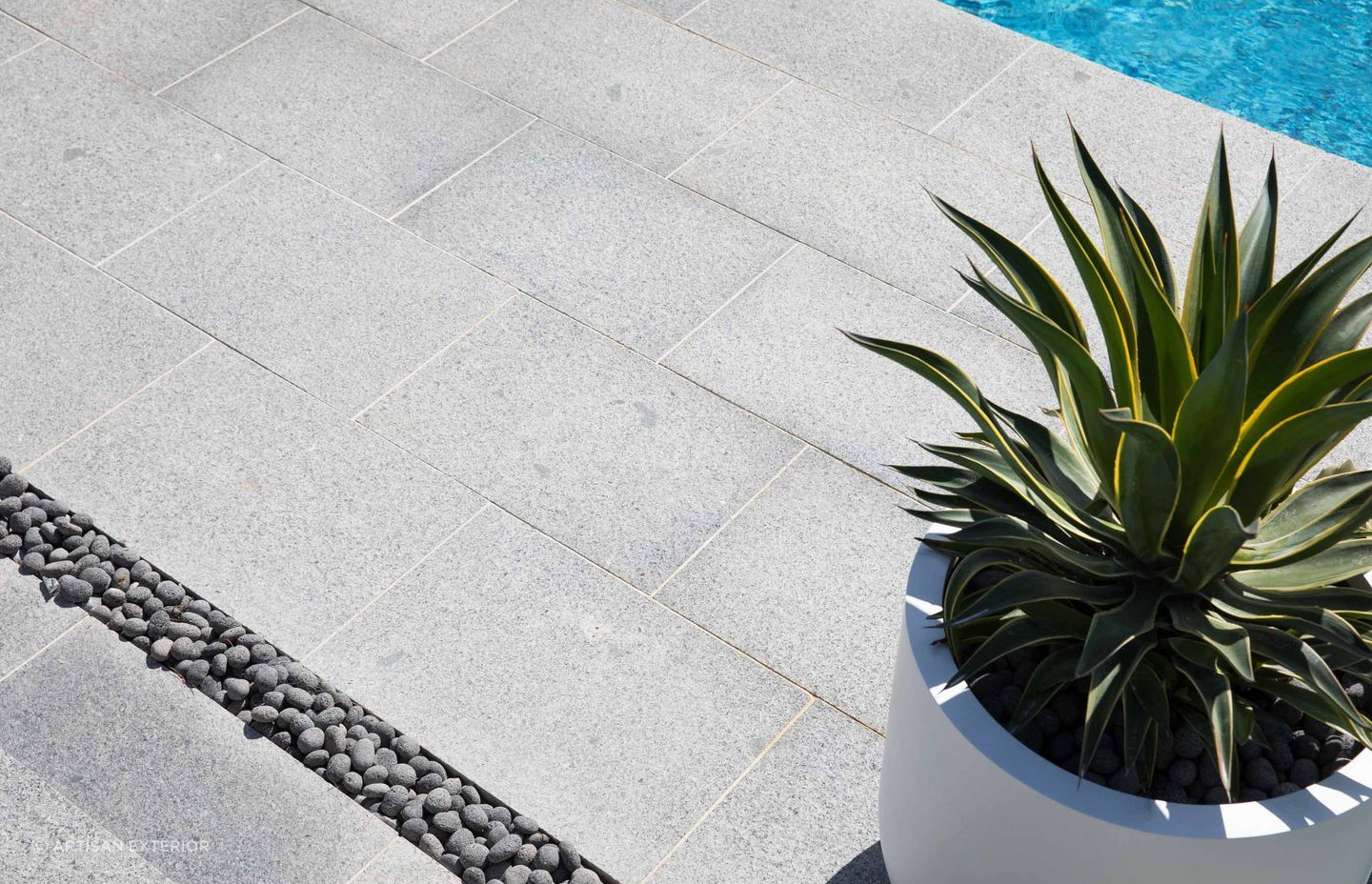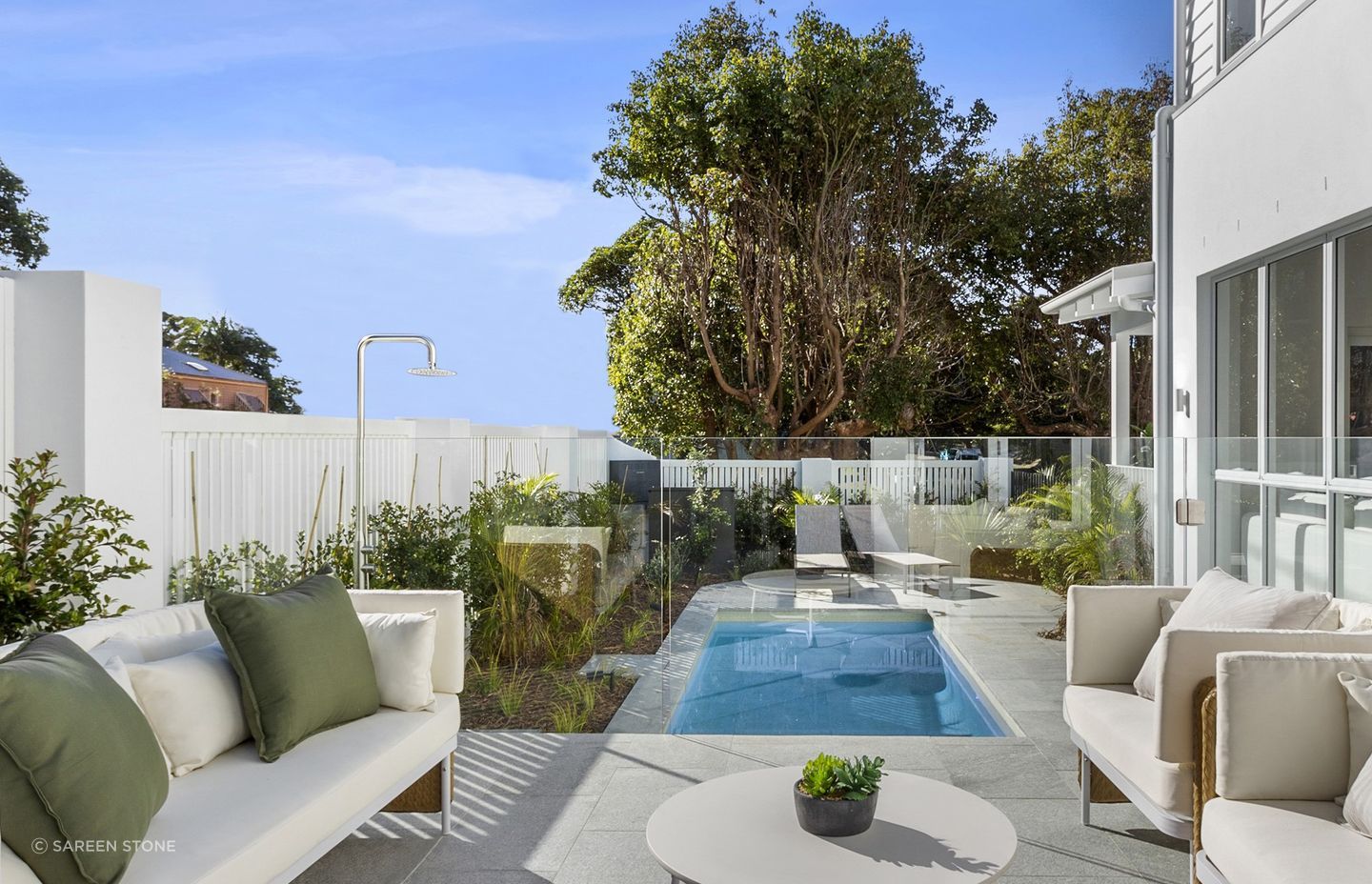Elegance set in stone: what's the price of granite?

Granite is a versatile natural stone used for a wide range of indoor and outdoor applications. It can be shaped into stunning kitchen countertops, tiles, bathroom countertops, vanities, and much more. Regardless of the application you have in mind for this stunning stone, it's important to understand the material's cost and what contributes to these costs.
How much does granite cost?
The simplest approach to understanding granite pricing is to consider it based on its primary uses:
Countertops: Granite countertop prices can range from around $700 per square metre to $2000+.
Tiles: The price of granite tiles an depend on where they are used, prices start at around $50 per square metre.
Slabs or paving: Granite slabs and paving pricing can depend on the size, and style of the slab or paver. Granite paving slabs start at around $75 per square metre, while custom granite slabs can be as much as $2000 or more.
What contributes to the cost of granite?
Several key factors that impact the price of granite:
Rarity and exclusivity of the granite
Certain types of granite are rarer than others due to their unique colours and patterns. Popular types include black galaxy granite, white granite and more. These exclusive variants are typically more expensive because they are less available and in higher demand among consumers who want a unique type of granite for their particular project
Thickness and size of the slab
The thickness of the granite slab directly affects its cost. Thicker slabs are more costly because they use more material and are heavier, which also impacts transportation costs. Larger slabs can be more expensive due to the increased material usage and the challenges associated with quarrying and transporting larger pieces.
Finish and complexity of fabrication
The finish of the granite (e.g., polished, honed, leathered) can affect its cost. Some finishes require more processing and labour. Additionally, the complexity of fabrication, such as detailed edge profiles or cut-outs for sinks and fixtures, can also increase the cost due to the additional labour and professional expertise required.
Transportation and delivery
The cost of transporting granite from the quarry to the supplier and eventually to the consumer's location can significantly affect the price. The further the granite needs to travel, especially if it's imported from another country, the more expensive it will be due to shipping and handling fees.
Installation costs
The complexity of the installation process will greatly influence the overall cost of granite application. This includes the labour for installing the granite, necessary preparations like reinforcing the cabinets beneath granite countertops, and making precision cuts to ensure the granite fits the designated space perfectly.
How can you keep granite in good condition?
You can keep granite in good condition by following a few key tips:
Daily cleaning
Wiping granite surfaces daily with a soft cloth or sponge and a mild detergent or a cleaner specifically designed for natural stone will keep it in good condition. Try and avoid using acidic or abrasive cleaners, as they can etch the stone's surface.
Keep spills to a minimum
Granite is relatively resistant to stains, but its still important to try and avoid staining the material and to clean up any spills immediately, especially substances prone to leaving stains such as wine, coffee or tomato sauce.
Keep sealed
Wherever you use granite its important to make sure it is sealed, and that the sealing remains in good condition. An easy way to test the sealing is to sprinkle a few drops of water on the surface, if the water beads up, the sealing is good, if it sinks then the granite needs resealing.
How does granite compare with other popular materials?
Granite vs Marble
Granite can be more resistant to scratches due to its mineral composition. It is also less porous than marble, making it more durable against everyday wear and tear. However, both minerals are highly prized for their natural beauty and unique appearance. Granite offers a more diverse range of patterns and colours, with a speckled appearance due to its mixed mineral composition. Meanwhile, marble is known for its elegant veining and soft, uniform background colours.
Granite vs Travertine
Granite is harder and less porous than travertine. Travertine, being softer and more porous, is more susceptible to wear and staining, needing protective sealants more frequently. Travertine is a form of limestone that is more porous and softer than granite, making it more susceptible to scratching and staining. However, it can still be used for many applications, just make sure to reseal it regularly.
As we’ve noted granite is known for its speckled appearance, travertine on the other hand is characterised by its pitted surface and earthy tones, which can range from beige to reddish brown. Its natural patterns create a warm, inviting atmosphere.
Granite vs Porcelain
Porcelain is a type of ceramic that is fired at higher temperatures; it is extremely durable and even more resistant to scratching and staining than granite. It is less likely to crack or chip under heavy use. Granite offers uniqueness in every tile or slab. Porcelain, on the other hand, can mimic the look of natural materials such as granite, marble, or wood. However, while it does provide great versatility in design, it doesn’t offer the unique, natural variations of granite.
A beautiful natural stone
Granite is a charming, sleek material that looks sleek inside or out, and this quick guide should have given you an idea of what you can expect to pay so you can make an informed decision about whether it's the correct choice for your next project.

